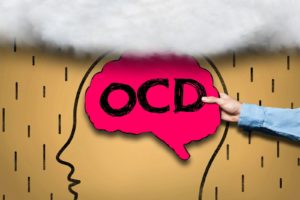To understand how sexuality affects the lives of adolescence, it is important to understand what the term ”adolescence” means as our understanding of it has evolved. It occurs between the onset of puberty and adulthood—both stages of development that vary greatly amongst the population. Depending on gender, genetics, and other environmental and biological factors, some people’s adolescent stage could last 15 years, and for others, it may only last 6 or 7 years. While the experience of this developmental stage has existed throughout human history, in psychology, adolescence was not recognized as a unique developmental stage until 1904 when G. Stanley Hall was credited for “discovering” adolescence. This important stage of development has historically been overlooked by the mental health community; the general public often views adolescence as an undesirable period in one’s life and a time that should be tolerated, versus embraced. The distinctive characteristics of adolescents, including sexuality, can be seen as problematic but the manner in which sexuality enters their lives can have significant impacts on their current and future relationships, and thusly deserves acknowledgment and discussion.
Recent technological advances in the internet, communication devices, and other media sources have had an undeniable impact on adolescent development, particularly related to sexual and relational development. Social media allows individuals to find groups of people who share common interests but can also perpetuate unhealthy ideas about body image and unrealistic expectations in sexual behavior. Advances in communication across time and space allow people to be in constant communication with peers but can also disincentivize face-to-face contact with less preferred peers. Relationships with less-preferred peers provide adolescents with the opportunity to engage in conflict resolution, practice assertive communication, and utilize empathic thinking. The internet can be a useful resource for teens who do not feel safe engaging in a conversation about sexual development with a caregiver or mentor. However, adolescent curiosity about sex can lead to exposure to pornographic related material, which increases the risk for inaccurate depictions of sex behavior, mediates more gender-stereotypical sexual beliefs (Peter & Valkenburg, 2007), and possibly results in excessive or obsessional engagement in pornography use (Bergner & Bridges, 2002). As practical psychologists with over 10 years of combined experience in the community and at Clarity Child Guidance Center—which provides a continuum of mental health services for children ages 3-17 and their families—we know it is essential to consider the impact of problematic internet use in general and especially with neurodevelopmentally atypical populations (i.e., AD/HD, Autism Spectrum) (Willoughby, Young-Petersen, & Leonhardt, 2018). Adolescents with these disorders may present with unique characteristics (e.g., social skills weaknesses) that lend themselves to being drawn to increased exposure to internet material which could include pornographic-like material. Relationships and experiences during this time shape identity, relational expectations, and interpersonal patterns that can impact our expectations as adults. Social media exposure complicates this process for today’s children in ways that are still not widely understood or discussed. It is important for those who mentor children to be aware of the ease with which sexually explicit material is available to children and the potentially detrimental impact it can have on identity, relationships and sexual health. Parental controls can be a deterrent to adolescents accessing material online but having an open and trusting relationship with your child likely leads to a decreased need or desire to navigate their sexual identity in isolation.
Dr. William Guy, Ph.D and Dr. Leslie Musgrove, Psy. D. are both psychologists at Clarity Child Guidance Center and will speak on this topic on 7-20-23 at Claritycon—a two-day children’s mental health conference with presentations by 30+ renowned experts that provide professional education and CEUs/CNEs. Registration available at www.claritycgc.org.










